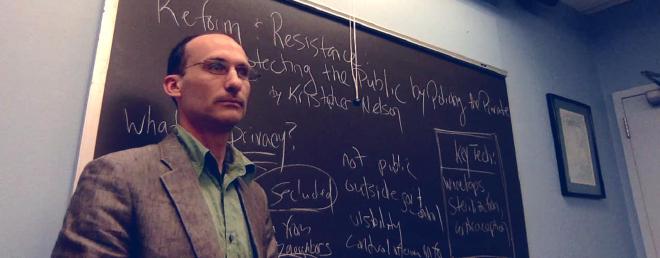
In the past, I’ve taught a variety of history classes beyond U.S. history. But regardless of the particular topic, in all of my classes, ranging from American History to Legal History to the History of Science, I focus on evidence-based reasoning and argument. I want students to learn history, but I also want to prepare them to be effective communicators in business, academia, politics, or any area where analysis and critical thinking matter.
I try to connect students with history. For example, in my introduction to the history of science, covering key moments, events, and people in science and technology from the Greeks, to the Enlightenment, to present-day issues, I always ask students, “Why does this matter to you?” And I encourage them to find modern-day similarities and connections to the past—and to remember the differences, too.
Law plays a role in everything I teach. Thus, when I teach general American history, I emphasize the role of law in society as a method of engaging students in the issues and debates that continue to resonate today. Together we ask questions like, “Who is an American and who decides that?” and “What is the role of government in providing for its citizens?”
Rationality and evidence-based reasoning—using data as the basis for argument and analysis—is another key aspect in my teaching. I work with students to support their positions and to move away from unjustified assertions.
I want students to learn history, but I particularly want to prepare them to be effective communicators and leaders in business, academia, politics, or any area where analysis and critical thinking matter. I aim to produce better thinkers and better citizens. History and the skills it develops can be both enriching and practical.
